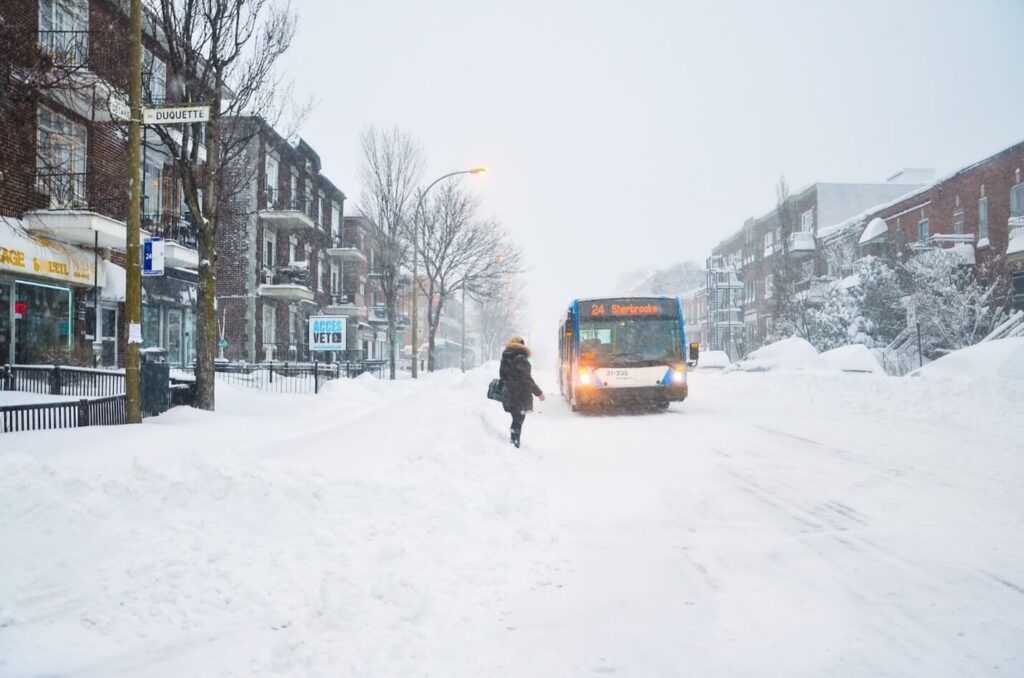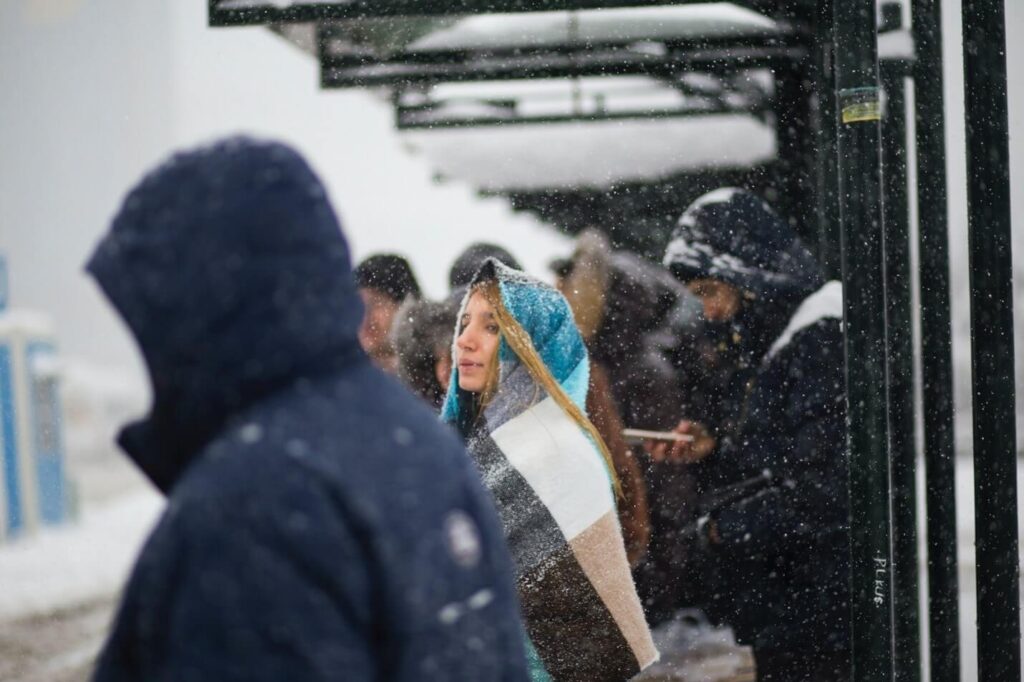We can all play a part in protecting our kids during Winter school days. For example, the slippery roads and footpath from the snowfall last night create a risk of injury for kids when they go to a bus stop. As a result, parents have to take precautions and measures during the cold season on behalf of their kids.

Children have to face the slippery path to reach the bus stop where their school bus will arrive. This raises the need to spread awareness for safer transport services, especially for young students. This article presents a useful take on providing helpful measures that will prepare your kids for winter bus stops.
Measures to take during Winter bus trips to School
It’s important for your children’s safety and well-being to dress appropriately for winter weather when they go to the bus stop. These are some crucial steps to take to guarantee a safe and easy winter bus ride to school.
Prepare for upcoming weather or alerts

Check the forecast for the following day to be aware of the upcoming weather. To learn about the weather this morning, consult reputable weather sources. By being proactive, you can plan ahead and avoid last-minute scrambles in the face of inclement weather. Keep track of any school closures or delays by subscribing to alerts. This will give you extra time to modify your morning schedule.
Have resources to stay warm

It is essential to have the proper supplies to stay warm. Make sure that your kids have appropriate winter clothing, such as waterproof boots, hats, gloves, and insulated jackets. Experts suggest that kids should cover their ears, nose, and fingers as these parts can get hurt the easiest during chilly winters. Warmed them well before heading to the bus stop to maximize the time it takes for your body to get colder. Put layers of clothes to keep your kids warm, and dry and protect them from snows. In cold weather, your kids should be wearing at least three layers of thick clothing. When they travel to the bus stop, warm supplies will keep them warm and shield them from the cold longer.
Cut Distractions to stay alert
Teach your kids to avoid distractions and to pay attention in order to improve safety. Remind them to watch out for potential hazards such as icy spots, traffic, and other obstacles while traveling. In order to help them stay safe and maintain awareness of their surroundings during the winter journey, encourage them to limit the use of headphones, cell phones, and other distractions.
Get to the bus top early

It’s a good idea to arrive at the bus stop early during winter weather conditions. This gives you extra time in case of unforeseen circumstances or inclement weather. Being early guarantees that your kids won’t be rushing, which lowers the possibility of falls and slips on icy pathways. This means that you may have to wake up your kids earlier than usual. It allows proper preparation without rushing due to time shortages. On the other hand, you should prepare their meals and uniforms (if any) well ahead of time as well.
- Be patient

During winter bus trips, patience is essential. Like everyone else, bus drivers drive carefully on winter roads. There may be unforeseen traffic and delays, particularly following recent snowfall. Have faith that the bus drivers are making every effort to give your kids a safe ride. Parents and students can benefit from a calm and stress-free environment if they can wait patiently for the bus.
Take leave if the kids are feeling unwell
During the early hours of school days, check on your kids regarding their health. If they are showing even minimal signs of sickness then it’s better to not send them to school the next morning. Going out in the freezing cold and waiting for the school bus can further elevate their sickness.
Conclusion
Providing safe conditions for our kids is the least we can do when they are using public transportation to reach their school. From your home to school, there is a big hurdle called a bus stop. This bus stop can be potentially a risk factor during cold winter. So it’s crucial to follow the measures that are mentioned above to have ideal school days for kids. Also, look out for your district transportation advisories for specific measures that may be happening in your area.
